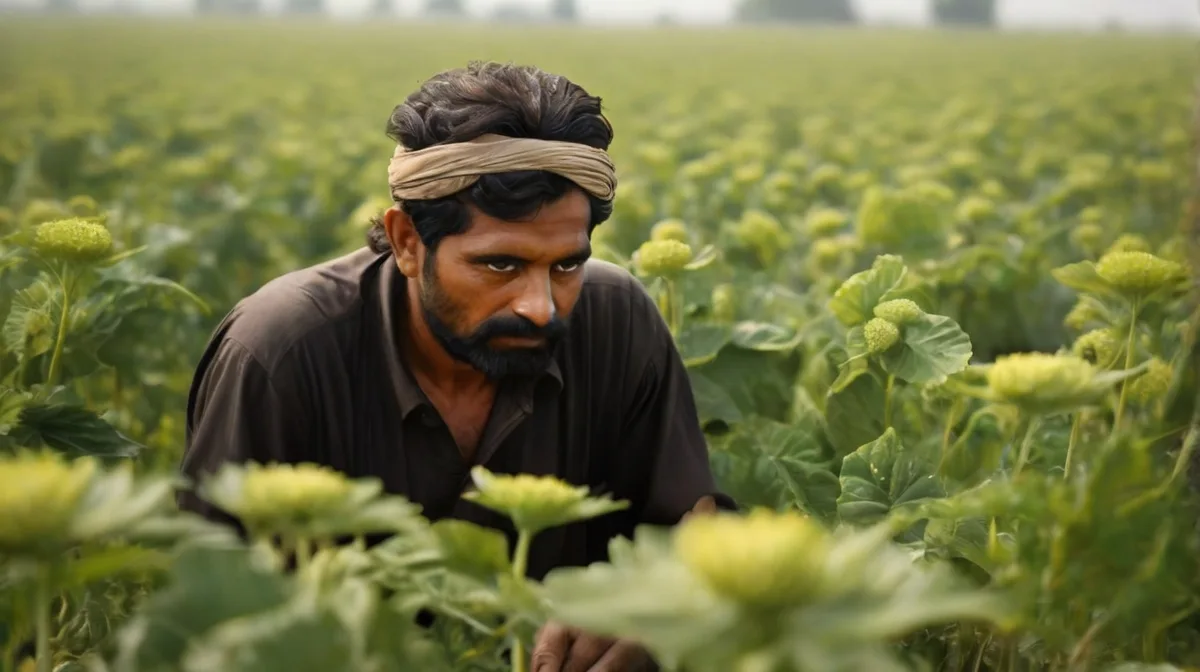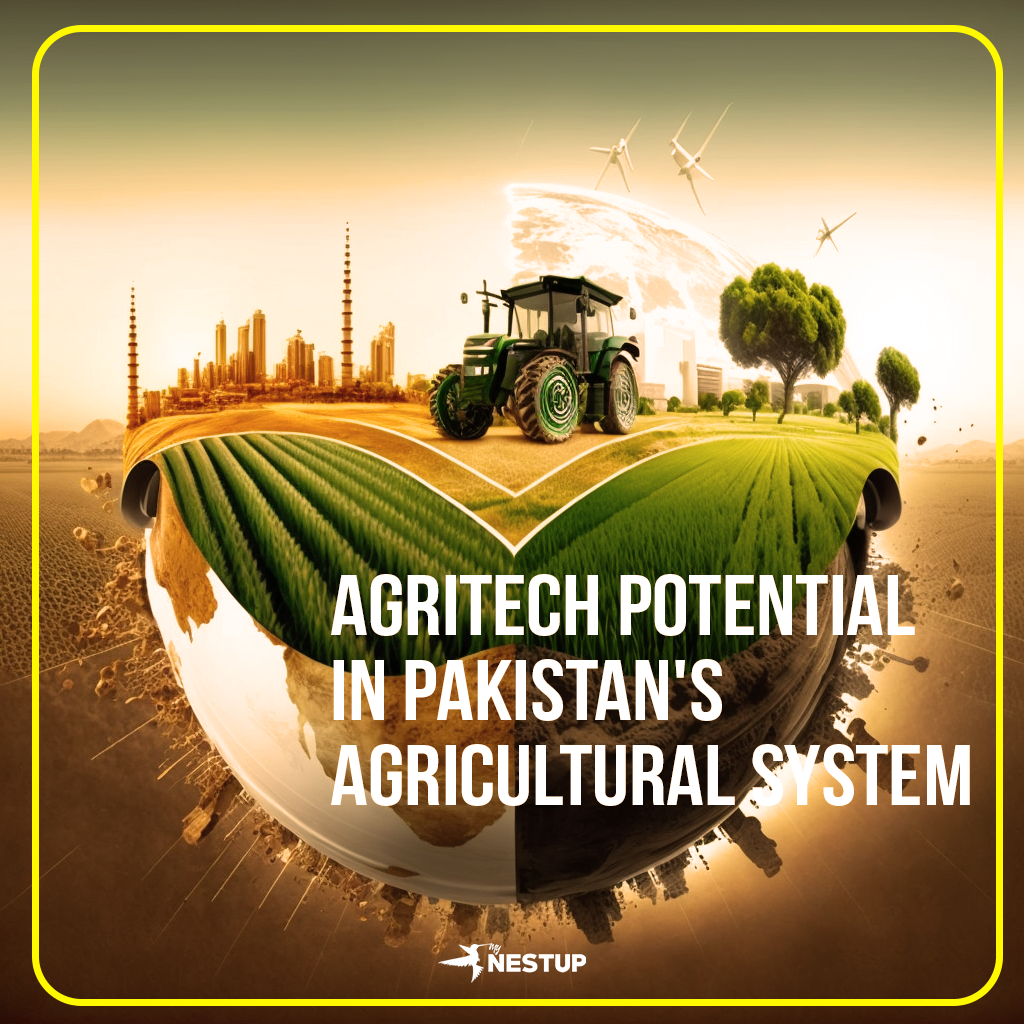In the heartland of Pakistan, where the fertile plains once thrived with abundance, a narrative of struggle and resilience unfolds within the intricate assortments of the agriculture ecosystem. As the sun rises over the fertile plains of Pakistan, a stark reality emerges – the specter of climate change looms large, casting a shadow of uncertainty over the agriculture sector. From the devastating floods that engulf vast swathes of land to the prolonged droughts that parch fertile fields, the Earth itself bears witness to the profound impacts of climatic upheaval.
One of the most pressing issues facing Pakistani farmers is the relentless onslaught of climate change. Erratic weather patterns, prolonged droughts, and unpredictable rainfall have disrupted traditional farming practices, leading to diminished crop yields and jeopardizing the livelihoods of countless families. Adapting to these environmental shifts requires innovative solutions and a concerted effort from policymakers, researchers, and the farming community.
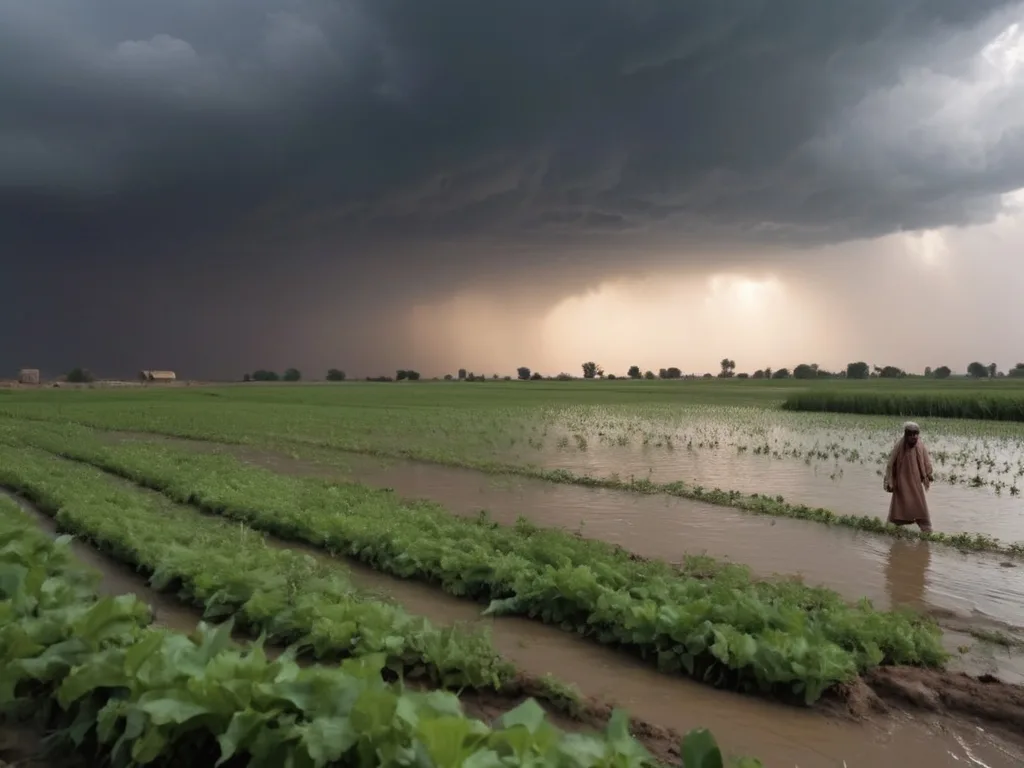
Confronting Climate Chaos
In the wake of unprecedented natural disasters and erratic weather patterns, Pakistan finds itself at the mercy of a rapidly changing climate, as revealed by the Martina Igini, in the study conducted by Earth.org. The study focus on the urgent need for heightened mitigation and adaptation efforts to avert irreversible consequences.
The findings brings up the grim picture of the devastation wrought by extreme weather events, such as the unprecedented floods of 2022 that submerged one-third of the country, claiming lives and displacing millions. Scientists attribute these calamities to climate change, warning of intensified monsoon seasons and erratic rainfall patterns in the years to come. With Pakistan ranked as the 5th most vulnerable country to climate change, urgent action is imperative to safeguard the agriculture sector and protect livelihoods.
As temperatures soar and rainfall patterns become increasingly erratic, Pakistan’s agriculture ecosystem faces existential threats. The study highlights the cascading impacts of climate change, from dwindling water sources to diminished crop yields and heightened food insecurity. Without concerted efforts to mitigate greenhouse gas emissions and bolster resilience, Pakistan’s agriculture sector risks being rendered unsustainable in the face of mounting climate pressures.
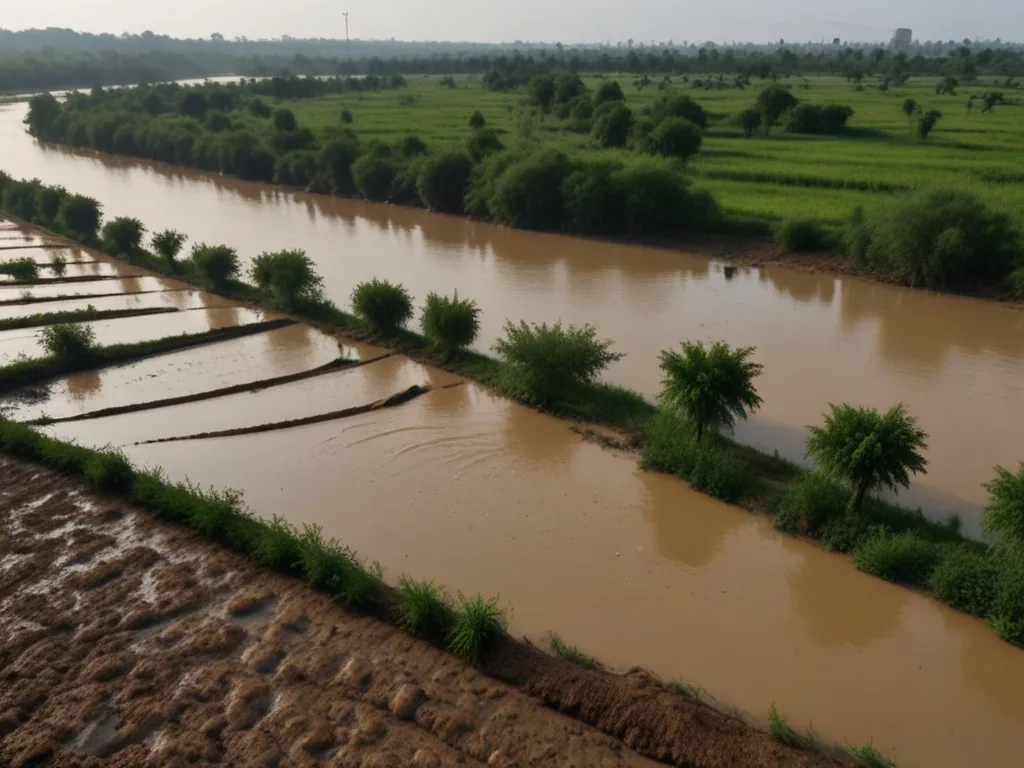
Navigating Regulatory Maze
In the labyrinth of regulatory constraints, Pakistan’s agriculture sector struggles to reach its full potential, as shared by Tribune. An overly regulated seed system stifles innovation and inhibits the industry’s ability to adapt to evolving challenges. The study underscores the urgent need for regulatory reforms to foster a more conducive environment for agricultural innovation and growth.
The highlights the detrimental impact of regulatory hurdles on agricultural productivity and competitiveness. With cumbersome bureaucratic processes and limited incentives for private sector investment, Pakistan’s agriculture ecosystem weaken under the weight of regulatory inertia. How can Pakistan streamline regulatory frameworks to spur innovation and foster a culture of entrepreneurship within the agriculture sector?
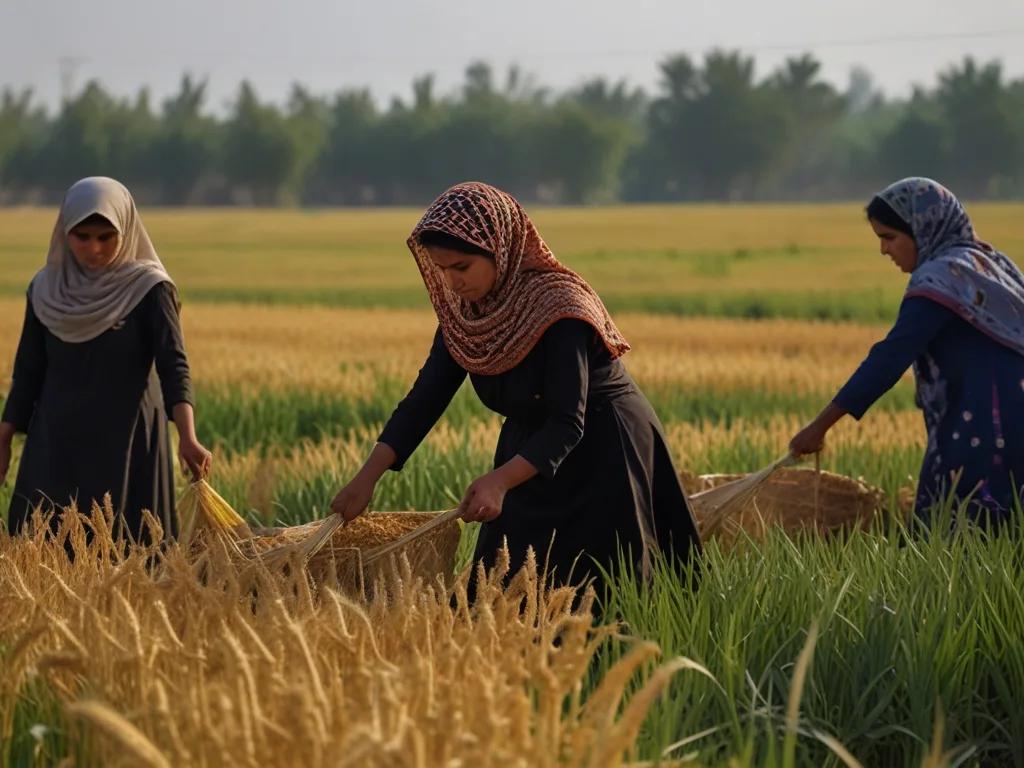
Empowering Women Farmers
In the shadows of fields, women farmers toil tirelessly, their contributions often overlooked and undervalued. Despite shouldering a significant portion of agricultural labor, women farmers face myriad challenges, from limited access to land and resources to pervasive gender biases within the industry. The urgent need to empower women farmers and recognize their vital role in driving agricultural productivity and food security.
The study of Dawn, sheds light on the gender disparities entrenched within Pakistan’s agriculture ecosystem. With women comprising a substantial portion of the agricultural workforce, their contributions are essential to the sector’s success. However, systemic barriers, such as limited access to land tenure and financial services, hinder their ability to fully participate in agricultural activities. How can the agriculture system in Pakistan break down these barriers and create an enabling environment for women farmers to thrive?
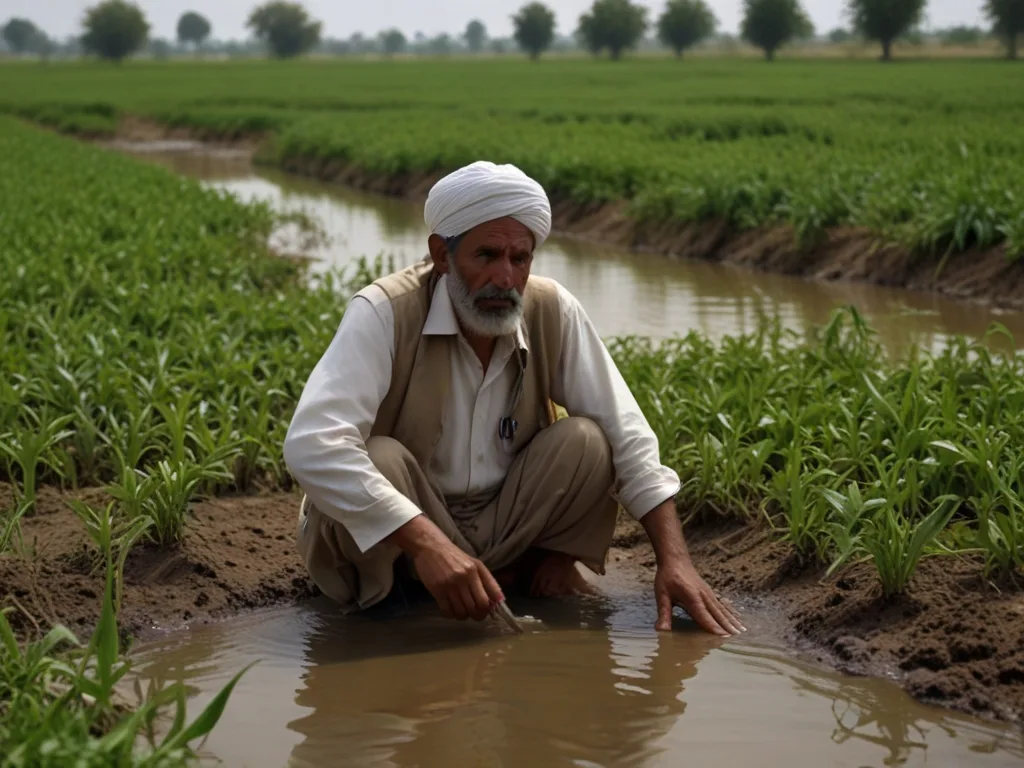
Tackling Water Insecurity
Amidst the parched landscapes and dwindling water sources, Pakistan grapples with the specter of water insecurity. With water availability per capita plummeting to alarming levels, the agriculture sector faces existential threats, jeopardizing food security and livelihoods. The study shows the urgent need for comprehensive water management strategies to mitigate the impacts of water scarcity and ensure sustainable agricultural practices.
The study brings up a sobering picture of Pakistan’s water woes, from inefficient irrigation practices to inadequate infrastructure and mismanagement of water resources. With agriculture accounting for the lion’s share of water consumption, the sector must play a pivotal role in water conservation efforts. How can Pakistan enhance water efficiency in agriculture while ensuring equitable access to this precious resource? As Dawn shares, addressing water insecurity is paramount to safeguarding Pakistan’s agriculture ecosystem for future generations.
Farmers, policymakers, and advocates in country are working to overcome challenges and build a more sustainable agriculture future. Through collective efforts, there is hope in navigating this storm and charting a course towards prosperity. Stay informed on the progress being made.
Follow MyNestup on Twitter, LinkedIn, Instagram and Facebook for insights on agriculture, finance and tech from Pakistan and across the world.



